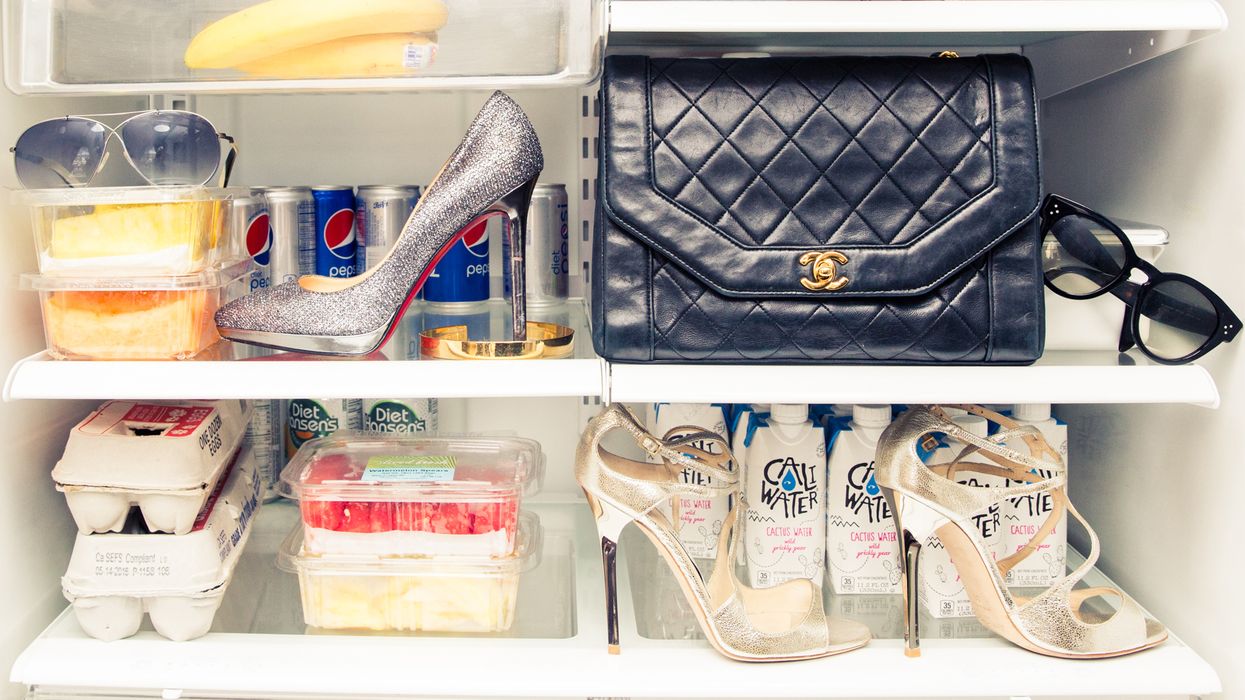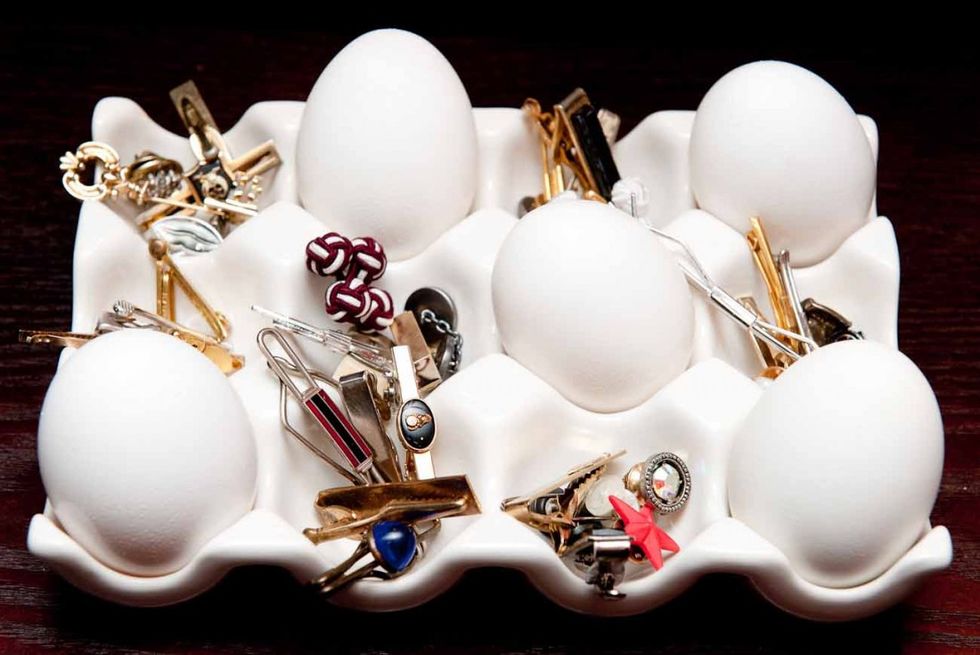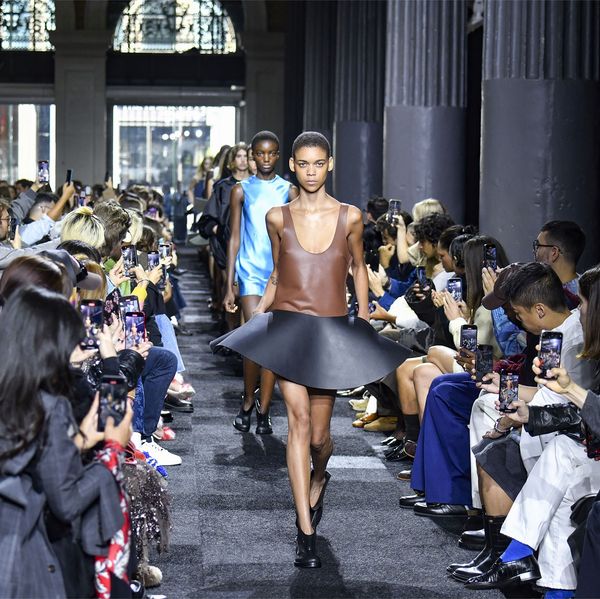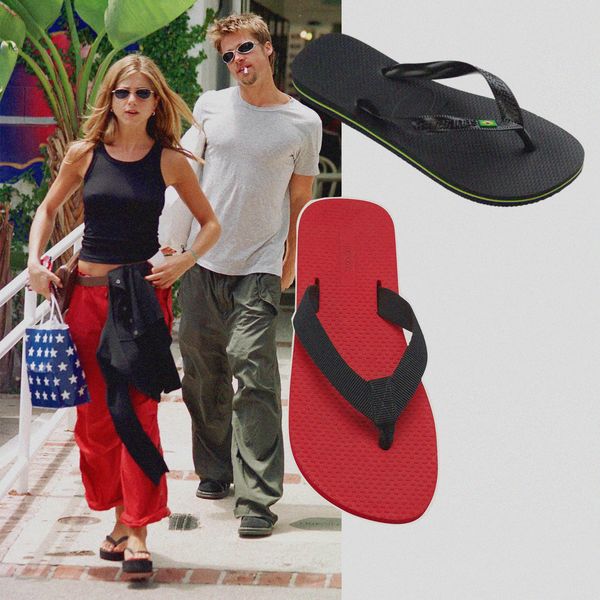
The past year has heightened pretty much everything, so it wasn’t surprising when we heard that more women than usual were freezing their eggs. Even without a pandemic raging, many women feel anxiety about the ol’ fertility window, and when you throw such uncertainty into the mix, those of us who like to plan ahead generally start a-plannin.’
So, we asked three women who froze their eggs in 2020 to tell us exactly what the process was like—and what they wish they’d known going into it. We also spoke with Dr. Jodie Horton, chief wellness advisor at Love Wellness, to shed some light on the procedure and tell us what to expect if you too would like to keep your eggs on ice.
Horton says that she has definitely seen an increase in demand for mature oocyte cryopreservation, as the kids say. “Many major fertility clinics across the U.S. have reported that more women are freezing their eggs since the pandemic started in 2020,” Horton tells us.
Though you may think of this as being a weird time for any medical procedure, that doesn’t necessarily have to be the case. “Some women say this is an ideal time to freeze their eggs,” Horton says. “Women can take medications and deal with side effects like bloating, cramping, and spotting at home without missing so much work or social events.”
She sees the general worldwide uncertainty as an impetus, as well. “Women are also worried about losing their job and medical insurance, so they want to take advantage of the insurance coverage they have now in an unstable job market compared to pre-pandemic,” Horton says.
The process itself hasn’t really changed. “The egg freezing process has not changed much since the pandemic,” she says. “Some of the initial appointments may be done by telehealth… and many fertility clinics have implemented coronavirus safety protocols.”
But if you’re healthy and COVID fear is keeping you from freezing your eggs, Horton says there’s no need to fret. “There’s no reason that a healthy woman without any underlying risk factors shouldn’t move forward with egg freezing,” she says.
Of course, exercising caution is key. “It’s important to practice social distancing and other safety guidelines to avoid testing positive during an egg freezing cycle,” Horton says. “If a woman contracts COVID, the egg freezing cycle will be canceled.”
So, you might be asked to quarantine to minimize risk. “Some physicians recommend remaining in full quarantine during egg freezing cycles to ensure there is no risk of transmission and cycle cancellation,” she says. “It’s also a great time to focus on getting healthy before freezing your eggs.”
Though women may be making deposits into the cryobank, withdrawals aren’t quite as popular right now. “I have not seen women take their already frozen eggs out and try to get pregnant” in the past year, Horton says. “Many women are waiting to be in a committed relationship or waiting for the ideal time to have a baby, which may include being in good health, having job stability, and good medical insurance.”
Of course, there’s never a perfect time to have kids, but it can’t hurt to wait for that trifecta to come along—assuming it comes along at some point. Read on to find out what the egg-freezing process was like for three women between the ages of 29 and 35.
Rachel Liverman, CEO and co-founder of Glowbar, 35
What inspired you to freeze your eggs in 2020?
“I had known I wanted to freeze my eggs when I was 35. I turned 35 in June and while home quarantining I spent a lot of time thinking about what was important to me in my life, and having the option to have a family in the future was number one. It was then that I went into planning mode to actually make it happen. I credit the pandemic greatly for bringing to light just how important taking care of myself and my health and my future really is.”
Have you wanted to freeze your eggs for a while?
“It’s definitely been top of mind for the last couple of years. I always knew if I was single at 35, I would freeze them.”
What kinds of safety protocols did you need to follow?
“I had to mostly quarantine during the entirety of the cycle, which for me was 10 days. This was mainly to make sure I stayed COVID-free, so I could have my retrieval. I had heard a story about a woman who contracted COVID during an egg freezing cycle and wasn’t allowed to get her retrieval, and had to wait to do it the next month. I was committed to that not being my story. Also, I had to attend all appointments alone, which was absolutely fine with me as I felt lucky enough to be able to even do this during the pandemic.”
Were you more concerned about your fertility and the future in light of what’s going on in the world?
“I wasn’t—it really was an age thing for me.”
Are you going to try to get pregnant in the next few years?
“Absolutely!”
What do you wish you’d known before you froze your eggs in 2020?
“I wish I had known to really do it sooner. In hindsight, I wish I had done it when I was 30. I also wish I had known to do it sooner so I wouldn’t have to quarantine during the cycle.”
Pandemic aside, what was it like to freeze your eggs?
“Freezing my eggs was harder for me logistically than anything, truly. I found the nightly shots and monitoring every morning to be just added stress on my schedule. Running a fast-growing business and fitting this in was really overwhelming, but physically it really wasn’t too bad for me. And the physical symptoms, like bloat and being tired, are outweighed significantly by the fact that I extended my fertility by a decade.”

Brooke, 35*
What inspired you to freeze your eggs in 2020?
“I went through a breakup over the summer of 2020 and given the pandemic, I knew it was going to be hard to meet someone new anytime soon. Even when I do meet someone, I don’t want to feel rushed or pressured to try and get pregnant. I felt like this was a way to buy myself some time and give myself some insurance and a backup plan. I also felt like working from home would give me more flexibility with doctor’s appointments.”
Have you wanted to freeze your eggs for a while?
“No. My OB/GYN brought it up to me about two years ago and I brushed it off. I thought, I don’t need to do that. I’m still young. Admittedly, I never seriously thought about it at all while I was in my relationship. I had seen an influencer I follow on Instagram share her journey in the past year or so, and once I knew my relationship wasn’t going to work out, it was the first time I considered it. Seeing her share her candid experience made the whole process seem so much more approachable and accessible than I had previously thought and like something I could actually do.”
What kinds of safety protocols did you need to follow?
“While I was going through the process with injections, I wasn’t really going anywhere besides my doctor’s appointments. If you test positive for COVID the days before your retrieval procedure then they have to cancel it. So I was extra cautious making sure I didn’t come into contact with anyone beyond the necessities.”
Were you more concerned about your fertility and the future in light of what’s going on in the world?
“Absolutely. It’s much harder to meet people now, so the likelihood of finding a partner is much less likely. This gives me a sense of security knowing I have options down the road.”
Are you going to try to get pregnant in the next few years?
“Ideally, I’d like to in the next five years, before I’m 40, but there’s no way to really predict what will happen. As of now, I don’t think I want to have kids on my own. I want a partner to have them with, but that could change if I’m still single in a couple of years.”
What do you wish you’d known before you froze your eggs in 2020?
“I wish I knew to do it sooner as I likely would’ve had better results. Even at 35, I had a diminished ovarian reserve. It’s hard because they say you should start looking into it when you’re 30, but very few people can afford to freeze their eggs at age 30. At 35, it was the first time in my life where I was in a financial situation that enabled me to freeze them.”
I know you had two rounds—why was that? Was the first not as fruitful as one might hope?
“The doctor told me for each potential kid you want, you should have at least 10 eggs. My first round I only had four and my second round I had three. I am done for now.”
Pandemic aside, what was it like to freeze your eggs?
“It was difficult both emotionally and physically, but not as bad as I thought it would be. Each cycle was very different for me too. The first time around the hardest part was learning how to give yourself the injections and mix all of the medications correctly. It was stressful not knowing if you were doing it right and worrying that you’d completely mess up your body and the process if you screwed something up.
“Another hard part is that you can’t exercise while you’re going through the process and for me, that’s such an important part of my routine for both physical and mental health. Physically, I didn’t really feel a ton of discomfort until right before and then after the procedure, but it’s all temporary and all-in each time it was about a month-long process from start to end. It was also just hectic running to the doctors office every other day to get bloodwork and ultrasounds done throughout the process.”
Jordan D’Nelle Jones, Women’s Sexual Health Educator, 30
(29 when she froze her eggs)
What inspired you to freeze your eggs in 2020?
“I had been putting it off for about four years. With the pandemic, I was able to work from home, which allowed me the time to go to all the appointments.”
Have you wanted to freeze your eggs for a while?
“I have, it’s been something I have wanted to do for years, especially as a single female who is not dating anyone.”
What kinds of safety protocols did you need to follow?
“No exercise—that was the hardest for me.”
Were you more concerned about your fertility and the future in light of what’s going on in the world?
“No. I was more worried about my timeline and my best opportunity for optimal retrieval.”
Are you going to try to get pregnant in the next few years?
“No.”
What do you wish you’d known before you froze your eggs in 2020?
“I wish I would have not continued to put it off.”
Pandemic aside, what was it like to freeze your eggs?
“It was extremely difficult emotionally and physically. We don’t talk about the rollercoaster ride you are on. I was in significant discomfort after my procedure because I had very high estrogen and was projected to hyperstim. The recovery was worse than the two weeks leading up to the procedure. And not being able to exercise made the process even harder, as that is my outlet for stress. The bloating was unreal and brought up a lot of body image issues as well. I was not feeling good about myself during this process.”
*Name has been changed
Want more stories like this?
Considering Freezing Your Eggs? Style Director Danielle Prescod on Preserving Her Reproductive Future
How to Tell Your Fertility Treatments Apart—and Which Ones Work Best
What Does a Birth Doula Really Do? We Investigate




